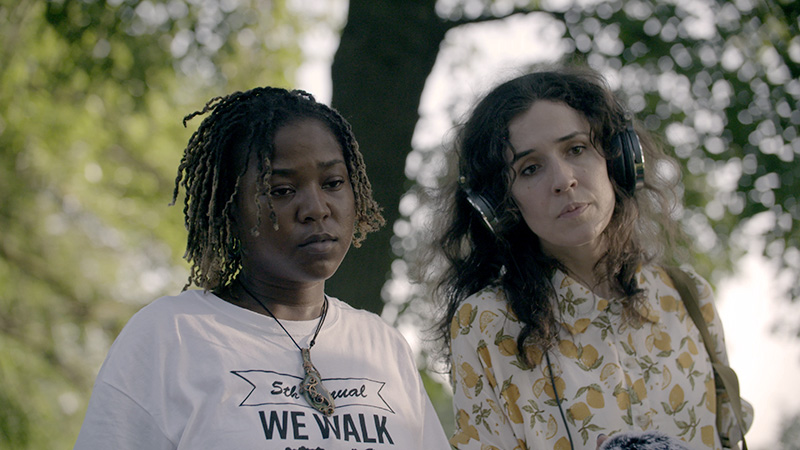Created Equal: Investigative report sheds light on Chicago missing person cases
Madison Ganzak July 1, 2024The joint report from Invisible Institute and City Bureau highlights the pattern of neglect by Chicago police when Black families report a loved one missing.

Trina Reynolds-Tyler (left) and Sarah Conway interviewed dozens of people over two years to create "Missing in Chicago," a joint investigative report from City Bureau and Invisible Institute.
Imagine people in your community — whether women, children, or someone you know and love — goes missing, and your local police do little to nothing about it.
This is exactly what happened to families in Chicago at an alarming rate, often with women who are Black or Latino, according to an investigative report from City Bureau and the Invisible Institute.
Illinois state law says police cannot refuse any missing person’s report or ask people to wait before filing a report, but the two-year investigation showed that they do.
The report’s authors, Trina Reynolds-Tyler of Invisible Institute and Sarah Conway of City Bureau, joined Created Equal on Monday to discuss their investigative report, titled “Missing in Chicago,” as well as to shed some light on why this happens and why law enforcement fails to do more.
Subscribe to Created Equal on Apple Podcasts, Spotify, Google Podcasts, NPR.org or wherever you get your podcasts.
Guests:
Trina Reynolds-Tyler is a journalist, data director at the Invisible Institute, and winner of the 2024 Pulitzer Prize in local reporting for “Missing in Chicago.” When starting her investigation with missing person cases with the Human Rights Data Analysis, Reynolds-Tyler says she has been at the Invisible Institute for eight years, and explained how she later joined a partnership with Sarah Conway after digging deeper into certain cases.
“I was already interested in missing persons cases, and specifically at the Invisible Institute I would lead a project called ‘Beneath the Surface,’ which interrogates the intersection between gender-based violence and policing; so I knew I wanted to use technology to parse through public records to tell stories,” Reynolds-Tyler said.
Sarah Conway is a senior reporter at City Bureau, and winner of the 2024 Pulitzer Prize in local reporting for “Missing in Chicago.” When looking at the data that was found, Conway says not only did they find massive data gaps from police policy, but after interviewing families dealing with missing person cases, they found a different pattern of data that was often rooted with neglect.
“Under Illinois law and Chicago police policy, police officers cannot deny or tell anyone to wait any amount of time before filing a missing person’s report,” said Conway. “However, when we talked to Black families, we often heard that they were being told to wait, sometimes 24 to 48 hours, or that police officers would imply that a loved one was out with a boyfriend or that she had run away, that there was some reason to explain the missingness, and in turn denying a family a missing person’s report.”
Listen to Created Equal with host Stephen Henderson weekdays from 9-10 a.m. ET on 101.9 WDET and streaming on-demand.
